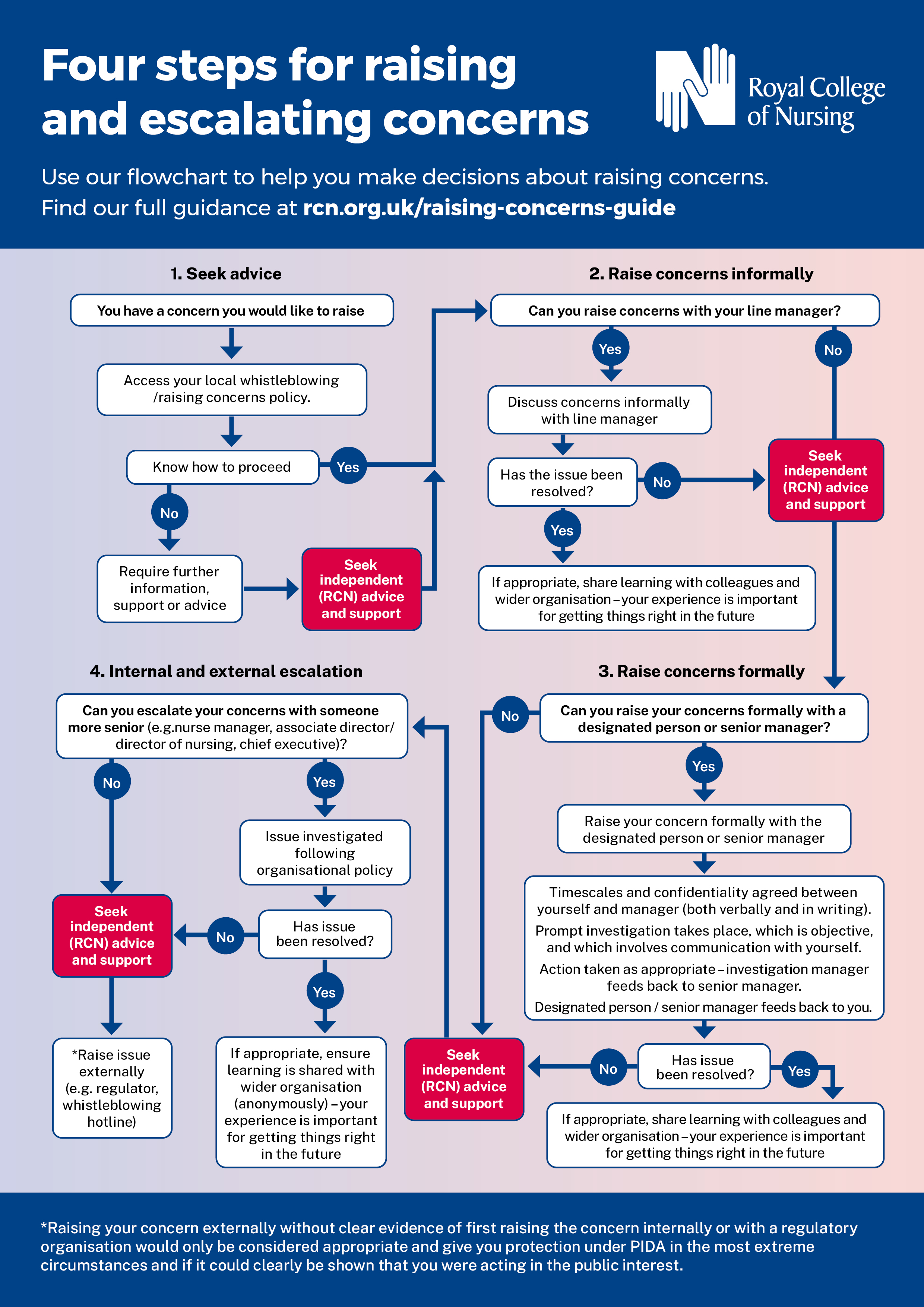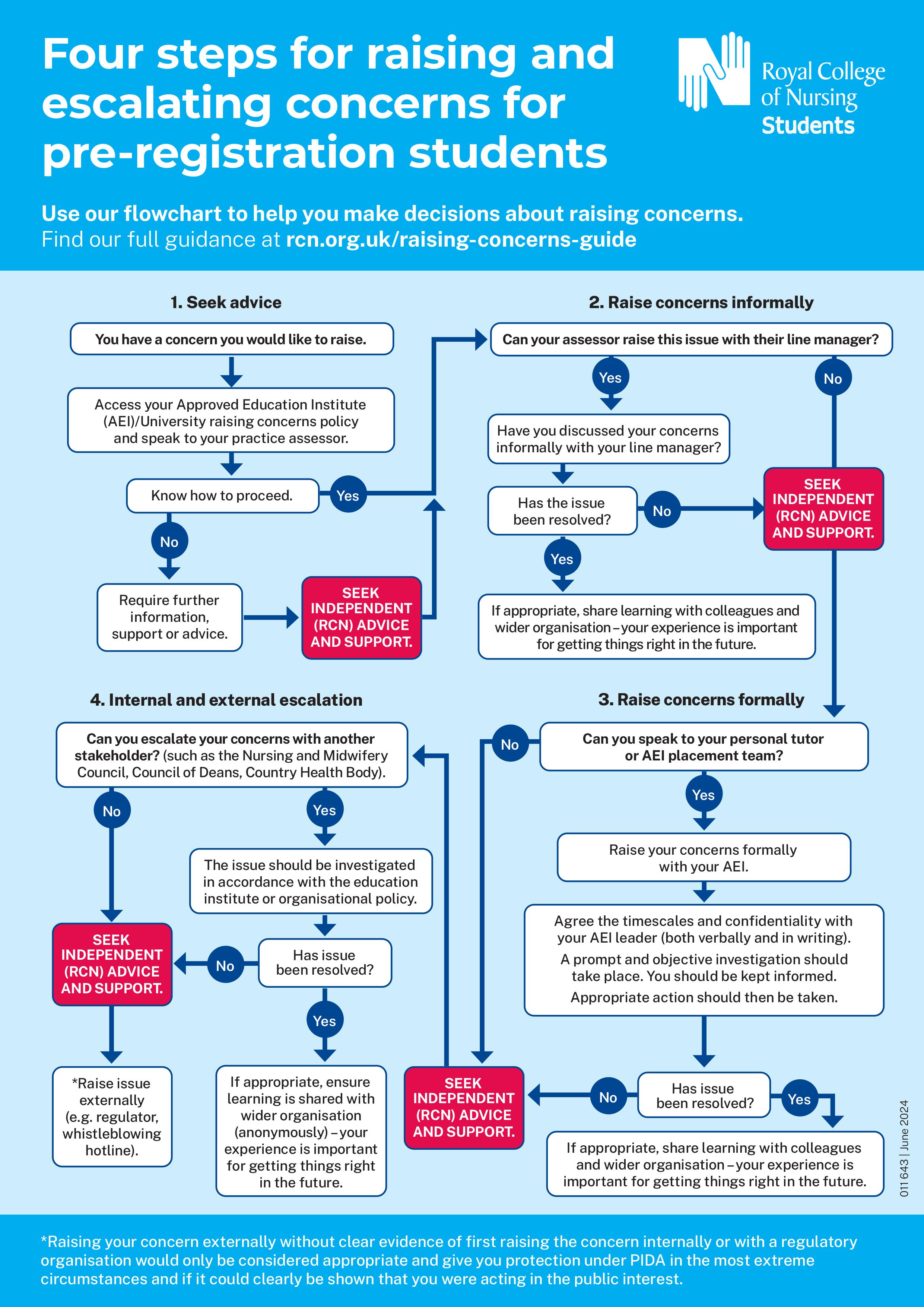Introduction

Raising a concern is not always easy but it is the right thing to do. It is about safeguarding and protecting, as well as learning from a situation and making improvements.
This guide is to help registered nurses, nursing associates, students and health care support workers (HCSWs) based in the NHS and independent sector.
It includes a decision-making tree to help nursing staff and students decide whether to raise a concern and when to escalate a concern.
The guidance on this webpage is also available as a downloadable publication.
You can use our decision tree to help you decide whether to raise a concern and when to escalate a concern. Our how to report section below will also be helpful.
If in doubt, you should always err on the side of caution and raise your concern following your employer’s (or if you are a student, your Higher Education Institution) policy.
Also see: Public Interest Disclosure Act 1998.
A student version of the decision tree is available below.














